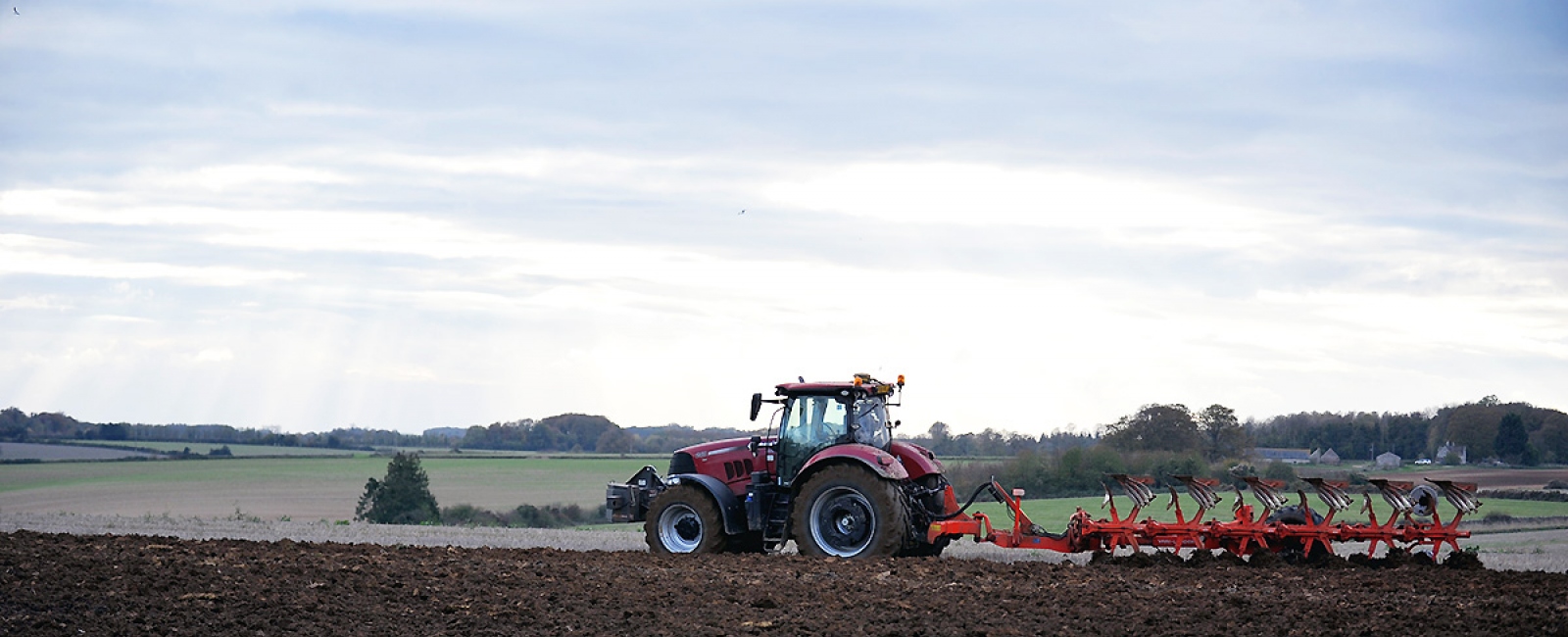BSc (Hons) Agriculture (Professional Placement Year)
The BSc (Hons) Agriculture degree is designed to develop the professional agriculturalists and farm managers of the future. This wide-reaching, industry-recognised programme is built on the latest applied research, informed by the RAU’s extensive industry networks and delivered by world-renowned experts in their fields. It will develop your skills so that you will make a difference and stand out in the agriculture sector. This is done through the applied understanding of science, practice, policy and innovation that underpins agricultural production, sustainability and resilient farm management.
Course overview
The aim of this flagship programme is to inform, inspire and enable you to gain a fundamental understanding and critical awareness of the problems facing agriculture, particularly issues pertaining to the challenges of food production and its global impact. We have worked with our industry stakeholders, current and past students, and within our own research teams to ensure our programmes are inspiring, forward-looking, and linked to the needs of the industry and employers.
The design of this degree is centred around four cornerstones:
- Technology and Innovation
- Environmental Sustainability
- Business and Enterprise
- Employability and Leadership.
Within each of these cornerstones, there are modules that will enable you to achieve the technological knowledge and employability skills to help you thrive in workplace.
You do not need to have an agricultural or farming background; you simply need the passion and drive to make a difference in a rapidly evolving industry. You will learn how to build a sustainable, profitable and resilient agricultural business which contributes to a thriving sector - whether as a farmer, land manager, rural entrepreneur, agronomist, economist, policymaker, researcher, scientist or consultant – career opportunities are diverse and eclectic.
Our programmes provide practical skills and training opportunities, insights into global challenges and perspectives, a focus on innovation, personal development, and the prioritisation and integration of research-informed teaching. Throughout the Agriculture degree programme, you will learn about a wide variety of farm and land-based enterprises, a spectrum of farming approaches, the role of technology and data and how to address the challenges and realities of sustainable commercial farming, whilst prioritising environmental protection, the highest standards of livestock welfare and farm business resilience. The programme focuses on the role of the professional agriculturalist of the future, equipping you with the knowledge and skills you need to understand and then address major challenges in our food systems, from food security, climate change and land use to the imbalances in our food supply chains and environmental degradation from producing food. At the same time, the degree will develop your understanding of the impact of a rapidly changing economic and political landscape on agriculture. This curriculum is a clear response to the global current and future issues within our food system facing everyone.
Our extensive contacts and external visits to livestock and crop enterprises and agribusinesses will provide you with invaluable insights into industry. Farm491 will give you unparalleled access to on-farm/applied product development initiatives and nearby farms will provide research trials. This will help you to understand what it takes to bridge the gap between the laboratory, the field, the commercial market and the farm. Students have gone on to work for organisations including Agrii, NIAB TAG and AGCO.
Work placement
In the third year, you will apply and develop your expertise and complete a 12-month period in the workplace. Not only could you find yourself working for prestigious companies in the UK or across the world, you will develop confidence and industry contacts for when you graduate.
Course content
Real-world farm management scenarios allow for the development of applied skills, such as collaboration, team work and communication skills, along with problem solving and analytical skills, which are further honed in research activities. Your skills will be assessed through assignments, coursework, oral presentation tasks, and written examinations in a number of modules and taught via a combination of lectures, seminars, tutorials, laboratory/technical work, group work, case studies and project work.
Guest lectures, conferences and field trips will also be used where appropriate as an important learning method for subject specific skills. The on-site research facilities and the RAU farms are used to enhance subject-specific learning.
The Research Project is an integral part of the course. Completed in your fourth year, it provides the opportunity to research a subject of specific interest or of direct relevance to your future employment.
Timetables
Please note that while we make every effort to ensure that timetables are as student-friendly as possible, scheduled teaching can take place on any day of the week. Wednesday afternoons are normally reserved for sports and societies activities.
Modules
Each module is worth a specified number of credits. Each credit equates to 10 hours of total study time. Total study time includes scheduled teaching, independent study and assessment activity.
Full-time students normally take modules worth 60 credits per 15 week semester but this can vary depending on your elective choice. Part-time students take proportionally fewer credits per semester. All students take a total of 120 credits per level and 360 credits for the degree as a whole. Your overall grade for your degree is based on marks obtained for modules taken at level 5 and level 6 (weighted 30:70 accordingly)
The modules available for this degree are shown below. They may change for your year of study as we regularly review our module offerings to ensure they’re informed by the latest research and teaching methods.
Year one
- 4M002 Professional, Practical and Study Skills: This module develops academic, employability, and practical skills for success in university and land-based careers. It includes reflective writing, data handling, digital literacy, and hands-on tasks relevant to the sector. Students explore sustainability, industry challenges, and professional development. Assessment includes a skills portfolio, a 1000-word reflective account, and a group presentation on a sustainability challenge. The module supports self-awareness, technical competence, and a sustainable mindset.
- 4A002 Farm Business Finance and Accounts: This module introduces financial and economic principles in farm business management. Topics include enterprise analysis, gross margins, profit and loss, balance sheets, cashflow, and agricultural market dynamics. Students explore planning, budgeting, and decision-making tools through case studies and practical tasks. Assessment includes a 1500-word portfolio and a 2000-word business plan. The module supports critical evaluation of financial performance, resource appraisal, and sustainable business planning in agricultural contexts.
- 4A001 Applied Plant and Animal Science: This module introduces core biological principles in plant and animal science, focusing on nutrition, reproduction, genetics, health, welfare, and crop management. Topics include animal behaviour, plant physiology, pest and disease control, and sustainable agronomy. Students engage in seminars, lab and field practicals. Assessment includes a 10-minute group presentation, two 30-minute online multiple-choice tests (animal and plant science), and a 30-minute practical identification test. The module supports critical evaluation of biological systems and their application in agricultural practice.
- 4A005 Farming Systems and Sustainability: This module examines diverse farming systems including arable, livestock, mixed, organic, regenerative, and agroecological approaches. Topics include climate change, soil and water management, urban agriculture, and future farming scenarios. Students engage with farm visits, guest speakers, and case studies. Assessment includes a 10-minute recorded presentation and a 2500-word case study-based report. The module supports critical evaluation of sustainability challenges, system transitions, and agroecological practices across global and UK agricultural contexts.
- 4A003 Agricultural Machinery, Technology and Buildings: This module explores the role of machinery, infrastructure, and emerging technologies in modern agriculture. Topics include power systems, cultivation equipment, livestock technologies, automation, and farm safety. Students engage with field trips and seminars to evaluate machinery performance and sustainability. Assessment includes a 30-minute online multiple-choice test, a 1500-word crop-specific report, and a 1500-word livestock-specific report. The module supports critical evaluation of mechanisation, innovation, and infrastructure in land-based systems.
- 4A004 Soil Science and Ecosystem Services: This module explores soil health and ecosystem services within agroecosystems and natural environments. Topics include soil formation, hydrology, ecology, chemistry, and biodiversity net gain. Students engage in lab and fieldwork, mapping, and case study visits. Assessment includes a 1500-word report with calculations and a 2-hour open book exam. The module supports critical evaluation of soil properties, environmental cycles, and the role of natural capital in supporting human wellbeing and sustainable land management.
Year two
- 5M002 Research and Evidence: This module develops students’ ability to design and justify research proposals using both quantitative and qualitative methods. Topics include study design, data analysis, ethics, and communication of findings. Students engage with real-world problems and explore research applications across disciplines. Assessment includes a 2500-word research proposal and a 2-hour online test. The module supports evidence-based thinking, analytical skills, and preparation for the Level 6 dissertation.
- 5A001 Agronomy: This module explores crop production in temperate climates, covering cereals, legumes, oilseeds, root crops, and grasslands. Topics include variety selection, crop establishment, nutrition, protection, and sustainability. Students engage with farm visits and industry-led seminars. Assessment includes a 1-hour online test, a 5-minute podcast, and a 1500-word crop growth blueprint. The module supports critical evaluation of agronomic decisions, crop improvement, and sustainable production systems.
- 5A002 Livestock Husbandry: This module examines sustainable livestock management across ruminant and monogastric species. Topics include breeding, feeding, welfare, and environmental impact. Students engage with field trips, case studies, and industry tools. Assessment includes a 10-minute individual presentation and a 2500-word feeding plan. The module supports critical evaluation of husbandry systems, genetic strategies, and nutrition planning for health, performance, and sustainability.
- 5A007 Technology and Nature-Based Innovations: This module investigates the integration of digital technologies and nature-based solutions in agriculture. Topics include sensors, robotics, agroecology, carbon management, and data-driven decision-making. Students engage with field demonstrations, case studies, and industry tools. Assessment includes a 2000-word scientific report and a 2000-word case study report. The module supports critical evaluation of innovation strategies for sustainable farm management.
- 5A003 Farm Business Planning and Food Supply Chains: This module introduces farm budgeting, financial planning, and supply chain dynamics. Topics include gross margins, cash flow, benchmarking, and food system integration. Students explore local and global supply chains and policy frameworks. Assessment includes two 2000-word reports: one on farm business planning and one on food supply chain strategy. The module supports critical evaluation of farm economics, resource use, and food security.
- 5M001 Industry Engagement: This module provides students with a structured industry placement to develop professional, technical, and reflective skills in a real-world context. Students complete a minimum of 444 hours of work-based learning aligned to their career goals. Assessment includes a CV and personal statement (500 words) and a reflective portfolio (1000 words). The module supports employability, self-awareness, and the application of academic knowledge in professional settings.
PLUS your choice of ONE elective module selected from:
- 5A010 Agricultural Commodities Trading: This module explores agricultural commodities trading and marketing strategies. Topics include market dynamics, pricing, risk management, and value-adding. Students engage with case studies, seminars, and a business visit. Assessment includes a 2000-word professional practice report and a 2000-word marketing plan. The module supports critical evaluation of trade trends, marketing theory, and strategic decision-making in agricultural business contexts.
- 5A008 Farm Animal Health and Welfare: This module examines the science, ethics, and practice of farm animal health and welfare. Topics include disease prevention, welfare assessment, legislation, and responsible medicine use. Students engage with field visits and case-based learning. Assessment includes a 2000-word farm animal health plan and an on-farm welfare assessment report. The module supports critical evaluation of welfare frameworks, ethical dilemmas, and sustainable livestock care.
- 5A009 Alternative Cropping Systems: This module explores the role of alternative crops in sustainable agriculture. Topics include cover crops, pulses, perennial grains, tropical staples, and industrial crops. Students engage with case studies, field visits, and farmer-led innovations. Assessment includes a 1-page infographic and a 2000-word resilient cropping plan. The module supports critical evaluation of crop-specific strategies, agroecological principles, and climate-resilient farming systems.
Year three
You will undertake your placement year during year three of your programme. You will complete Years 1 and 2, complete the placement year and then return for your final year of the programme.
PPY Professional Placement Year: This module enables students to undertake a 9–12-month work placement to gain practical experience and enhance career readiness. Students engage in planning, professional practice, critical reflection, and career development. Assessment includes a 3000-word reflective portfolio with embedded case studies and a pass/fail professional skills evaluation by the placement supervisor. The module supports the application of academic theory in real-world contexts and fosters graduate employability through experiential learning.
Year four
- 6M001 Research Project: This module enables students to undertake an independent research project aligned with their subject area. Topics are student-selected and supported through supervisor meetings and workshops. Assessment includes a 5-minute progress presentation and a 12,000-word thesis or multimedia portfolio. The module supports critical evaluation, ethical research design, and evidence-based recommendations for real-world challenges.
- 6A001 Agroecological and Technological Solutions: This module explores global food system challenges and evaluates agroecological and technological solutions. Topics include climate change, biodiversity loss, animal welfare, and sustainable crop and livestock systems. Students engage with field trips, seminars, and guest lectures. Assessment includes a 5-minute podcast, a 10-minute individual presentation, and a portfolio of six field visit reflections. The module supports critical evaluation of farming innovations and sustainability strategies.
- 6A002 Agri-Food Systems and Policies: This module examines food systems through systems thinking and the One Health framework. Topics include food security, policy development, economics, and regenerative agriculture. Students engage with debates, case studies, and guest speakers. Assessment includes a 1000-word academic poster and a 2500-word literature review. The module supports critical evaluation of global food policy, health interconnections, and sustainable system design.
PLUS your choice of TWO elective modules selected from:
- 6A003 Advanced Farm Business Management: This module develops strategic planning skills for farm enterprises under economic and environmental pressures. Topics include financial forecasting, resource appraisal, compliance, and net-zero strategies. Students engage with site visits, workshops, and scenario-based planning. Assessment includes a 2000-word farm plan and a 2000-word rental plan. The module supports critical evaluation of farm performance, sustainability, and business innovation.
- 6A004 Farm Business Consultancy: This module explores strategic consultancy for small and medium-sized farm businesses. Topics include financial analysis, investment appraisal, taxation, and feasibility planning. Students engage with case studies and industry practices. Assessment includes a 1500-word accounts analysis and a 2000-word strategic consultancy report. The module supports critical evaluation of farm performance, financial planning, and advisory techniques for sustainable business development.
- 6A005 Advanced Livestock Nutrition and Breeding: This module investigates sustainable breeding and nutrition strategies across livestock species. Topics include genomic selection, reproductive technologies, feed innovations, and precision nutrition. Students engage with field visits, seminars, and practicals. Assessment includes a 2500-word breeding improvement plan and a 1000-word nutrition problem sheet. The module supports critical evaluation of livestock systems and data-driven solutions for animal health and productivity.
- 6A006 Crop Health, Nutrition and Protection: This module examines sustainable crop management strategies. Topics include pest and disease control, crop nutrition, biosecurity, and integrated pest management. Students engage with field visits, lab work, and agronomy exercises. Assessment includes a group presentation, a 2000-word crop monitoring report, and a viva voce. The module supports critical evaluation of crop health challenges and evidence-based agronomic decision-making.
- 6W001 Countryside and Environmental Management: This module addresses contemporary countryside issues such as biodiversity loss, climate change, and rural development. Students explore policy, land management strategies, and sustainability through field visits and case studies. Assessment includes a 1500-word grant application, a presentation of a countryside improvement plan, and a 7-day timed assessment. The module develops applied knowledge and strategic thinking for environmental management careers.
The availability of electives to individual students will be dependent on timetabling considerations and on sufficient students electing to take part.
Disclaimer information
The University has established various rules and regulations that you must agree to and follow if you accept an offer to study with us. View our full disclaimer notice.
Careers and graduate destinations
Our graduates have gone on to pursue careers within companies worldwide and within the following roles:
- Agronomist
- Nutritionist
- Geneticist/breeding specialist
- Farm manager
- Health and welfare manager
- Animal scientist
"The RAU has given me the knowledge and confidence through hands-on field work and understanding of the reasoning behind practices, to help me build on my love for agriculture. If you're considering studying at the RAU, I'd say go for it, even if, like me, you're not from a farming background."
Malachi Fisher, Graduate
Entry requirements
Typical offers
Required: GCSE minimum five GCSEs at Grade C/4 including English Language and Mathematics (or Maths Numeracy for Welsh applicants) plus satisfactory level 3 qualifications, one science level 3 subject is recommended for this programme:
- A-Level: (Example grades BCC) – minimum of 104 UCAS tariff points across three A-Levels or equivalent qualifications – recommended one science subject
- C&G Advanced Technical/BTEC - Level 3 Extended Diploma (1080) at Distinction-Merit-Merit
- C&G NPTC/C&G Advanced Technical/BTEC - Level 3 Diploma (720), Extended Certificate (360) and 90-Credit Diploma (540) acceptable when accompanied by other Level 3 qualifications
- International Baccalaureate: 26 points
- Access to Higher Education: 45 credits at level 3, of which 21 must be awarded at Distinction and 15 at Merit or higher. (Pass at Functional Skills level 2 are accepted in lieu of GCSE English & Mathematics)
- A period of relevant practical experience is also highly recommended
Other level 3 qualifications will be considered.
Visit the UCAS website to calculate your UCAS Tariff points from the qualifications and grades achieved.
You may also be eligible for a contextual offer if you’re from one of our link colleges, have been in care, from a non-white ethnic background, live in an area with low progression rates to university or you are a veteran/child of an armed forces family.
Flexible entry
The University welcomes interest from applicants who may not have the standard entry requirements. A wide range of qualifications and experience are accepted in order to join University degree programmes. The University always considers evidence of personal, professional (APL) and educational experience, (APEL), which show an ability to meet the demands of their intended programme of study.
Further information
Alternative entry routes are available for a range of other qualifications. Prior experience is also considered, subject to approval by the programme manager and admissions staff.
Read more general information about our entry requirements.
If you don't meet the entry requirements of this course, you may be eligible for one of our Foundation degree courses or another related degree course.
International students will also need to achieve IELTS Academic or equivalent at the appropriate level for your programme of study. English language requirements for international students.
For any further help, please contact our admissions team:
- Email: admissions@rau.ac.uk
- Telephone: +44 (0)1285 889912
Fees
2026-27 Applicants
For the academic year 2026-27 the tuition fees for this course are:
| UK | International | |
|---|---|---|
| Full-time | £9,790 per year | £16,950 per year |
| Placement year | £1,955 per year | £3,390 per year |
For part-time study, please contact admissions@rau.ac.uk for further information.
Please also refer to the funding your time at university page.
Tuition fees may be subject to an inflationary increase each year as set out in our Access and Participation Plan and are subject to Government and regulatory body conditions.
Scholarships
The University offers a wide range of generous fee waivers and bursaries. To find out more about the these, please visit the bursaries, awards and scholarships page.
Ready to take the plunge? Apply now
Applications should be made by the UCAS deadline to ensure we are able to offer you a place on your first choice course. However, if you have missed the deadline please contact Admissions@rau.ac.uk as there are usually places available.
If you would like to apply during UCAS Extra or Clearing, please check that we have places available.
Applicants wishing to study on a course on a part-time basis will need to apply directly to the RAU.
Please contact admissions@rau.ac.uk to discuss your requirements and obtain an application form.



